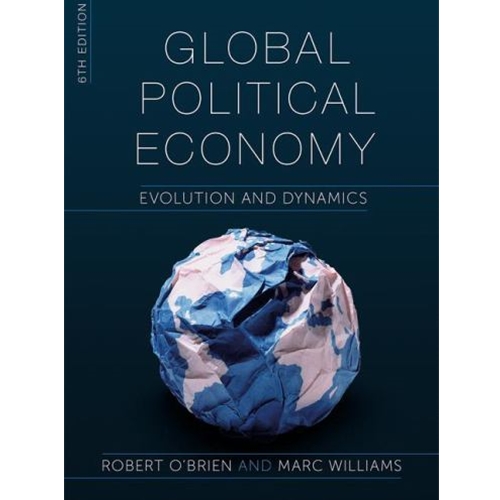The concept of a global government may elicit intrigue or skepticism, prompting a playful question: Are we ready for a governance system that transcends national borders? The Bahá’í teachings on economic and political change offer a profound perspective on this potential challenge, advocating for a unified global community that harmonizes diverse national interests. Within the Bahá’í framework, such aspirations are not merely theoretical, but rather practical imperatives that could fundamentally reshape human civilization.
The Bahá’í Faith posits that economic and political injustices are pervasive impediments to progress. The teachings emphasize that injustice and inequality undermine societal stability, necessitating a recalibration of prevailing systems. This notion informs the Bahá’í understanding of economic change as an essential precursor to achieving global governance. The establishment of a system characterized by equitable distribution of wealth is crucial. In stark contrast to the disparity exacerbated by capitalism, the Bahá’í model advocates for the prioritization of community welfare over individual profit. This is not a call for radical socialism, but an endorsement of an economic paradigm that recognizes the need for global interdependence and shared prosperity.
In discussing the political dimension, Bahá’í teachings assert that traditional nationalism often engenders conflict and division. The call for a global government is not an abandonment of cultural identities, but rather an embrace of a larger, more inclusive communal identity. The framework of a unified global governance structure would ideally be predicated on the principles of collective decision-making and participatory democracy. Such a system would ensure that all voices are heard, fostering a sense of ownership and responsibility for the global community’s collective destiny.
However, one must consider how this vision can effectively materialize amid the complexities of global politics. The challenge lies in overcoming entrenched national interests that prioritize sovereignty and self-interest over collective action. Here, the Bahá’í tenet of “consultation” becomes pivotal. This process involves engaging in open and respectful dialogue, where individuals and nations can arrive at constructive consensus. This is essential not only for internal governance within the Bahá’í community but can serve as a model for international relations as well.
The Bahá’í perspective on economic equity also extends to the recognition of the rights of workers. Societal progress hinges on honoring the dignity of labor, ensuring fair wages, and creating opportunities for all. This aligns with the larger vision of a global government that is accountable to its people, emphasizing the importance of elevating standards of living and promoting education as foundational elements of a prosperous society. As we explore these teachings further, one can observe that a comprehensive approach to education—one that prioritizes critical thinking, ethical considerations, and global citizenship—is vital for fostering a populace equipped to navigate complex governmental structures.
Moreover, the integration of moral leadership within political spheres is underscored in Bahá’í teachings. Such leadership is characterized by integrity, transparency, and a dedication to the common good. To navigate the transition toward a global governance system, it is imperative that leaders exhibit these qualities, fostering trust and commitment among diverse populations. By nurturing a new generation of leaders who embrace these ideals, the global community can progressively shift from a fragmented state of governance to one that honors and uplifts humanity.
The intricacies of economic and political change also demand innovative conflict resolution mechanisms. Here, the Bahá’í principle of harmony as a fundamental societal goal comes to the fore. When conflicts arise, the emphasis should be on finding resolutions that do not merely silence dissent but rather seek to understand and integrate differing viewpoints. In doing so, a culture of peace can take root, allowing for the collaboration necessary to implement effective global governance.
Furthermore, the interrelation of science and religion, as highlighted in Bahá’í teachings, must not be overlooked. A global government must leverage scientific advancements in technology and communications to facilitate connectivity and cooperation among nations. This synergy between scientific inquiry and spiritual wisdom enables humanity to address pressing global challenges—be it climate change, economic inequality, or public health crises—with agility and foresight.
As we navigate these transformative teachings, a crucial component of this visionary movement is the collective responsibility of every individual. The Bahá’í Faith encourages active participation in civic duties, asserting that nurturing a global consciousness is essential for effecting change. Whether through grassroots initiatives, community building, or participation in governance, the role of each person becomes indispensable in the quest for a just and peaceful world.
Consequently, the arduous journey toward establishing a global government necessitates perseverance and a shared vision of inclusivity and equity. Upholding the Bahá’í principles of unity and cooperation amidst diversity invites us to transcend parochialism and embrace our collective humanity. The potential for economic and political transformation thus lies not solely in theoretical constructs but also in the conscious actions of individuals striving for a collaborative and equitable global society.
In conclusion, the challenge posed by the dream of a global governance system is a testament to humanity’s capacity for growth and reconciliation. The Bahá’í teachings provide an inspiring roadmap, guiding us toward an interconnected future where justice, equity, and peace are the cornerstones of society. Embracing these principles paves the way forward, not as mere aspirational ideals, but as essential mandates for the unfolding of a prosperous humanity.
